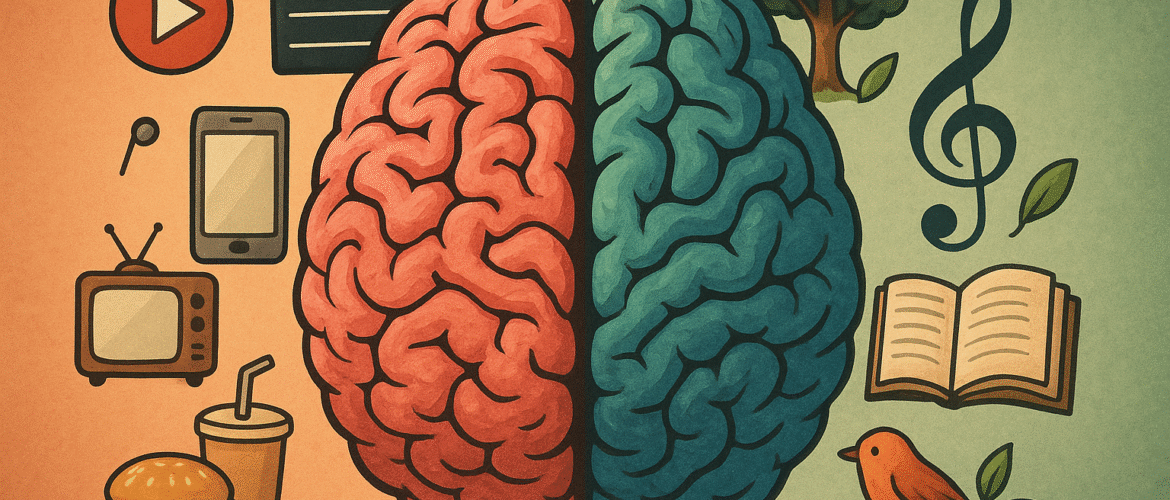Blog
Music and the “Mind Diet”: What Parents Should Know
- September 30, 2025
- Posted by: fuol1
- Category: Parent Resources

Music and the “Mind Diet”: What Parents Should Know
Every parent who invests in music lessons wants the same thing: for their child to enjoy music, grow their skills, and eventually play with confidence and creativity. We talk a lot about how much practice a child needs, but there’s something even more important that rarely gets mentioned: the state of their mind when they sit down to practice.
This is where the idea of the “mind diet” comes in. Just as healthy food builds strong bodies, healthy mental input builds strong focus and imagination. And the reverse is also true—when children’s minds are filled with distraction and overstimulation, music can feel frustrating and even pointless.
Why Screens Interfere with Music Learning
Today’s children live in a world of constant stimulation. Short-form videos, games, and scrolling don’t just pass the time—they reshape how the brain works. Neuroscience explains it this way:
- Dopamine overload: Quick, colorful, and fast-changing content triggers instant dopamine hits. The brain starts to crave that speed, making slower activities like music practice feel boring or “too hard.”
- Fragmented attention: Scrolling trains the brain to jump from one thing to another every few seconds. Music, on the other hand, demands sustained focus—listening, adjusting, repeating, and staying present.
- Mental fatigue: Just like muscles get tired after a workout, the brain gets tired after overstimulation. If a child spends hours absorbing chaotic content, by the time they sit at the piano, their mental energy is already drained.
It’s no wonder music lessons sometimes feel like a battle—not because the child lacks talent or discipline, but because their brain simply isn’t in the right state to create.
The Parent’s Role in Shaping the Mind Diet
The good news is: parents have more influence here than they realize. A child’s mental input isn’t random—it’s shaped by routines, home environment, and habits modeled by adults.
Here’s how you can protect and strengthen your child’s focus for music:
- Set gentle limits on screen time: Not as punishment, but as protection. Think of it like limiting junk food—too much spoils the appetite for what really nourishes.
- Offer “slow food” for the brain: Encourage reading, drawing, building, nature walks, or simply letting them daydream. These activities stretch imagination and teach the brain patience.
- Create a calm, uncluttered practice space: A messy or noisy environment signals distraction. A clear space, free of screens, signals focus and creativity.
- Model balance as adults: Children copy what they see more than what they’re told. If they see you reading, focusing, or enjoying quiet activities, they’ll be more likely to do the same.
When Music Truly Comes Alive
Music isn’t just about hitting the right notes. It’s about listening, imagining, and expressing something beyond the page. And that can only happen when the mind has the space and energy to engage deeply.
When children have a healthy “mind diet,” something beautiful happens:
- Practice feels easier, not forced.
- Focus improves naturally.
- Creativity flows.
- Music stops being just a task and becomes an experience.
The magic of music doesn’t come only from lessons or practice time. It comes from the mind your child brings to the instrument. Protect their focus, feed their imagination wisely, and you’ll see music come alive in ways that no amount of extra practice hours could ever achieve.
